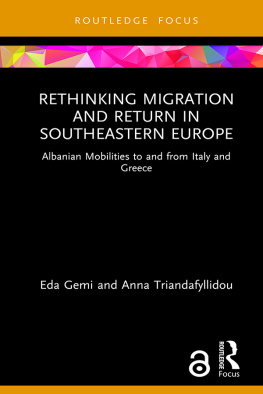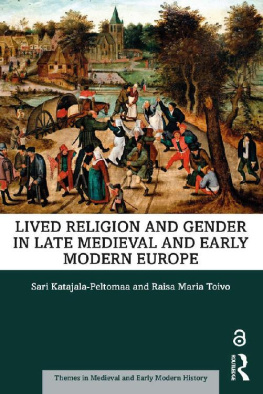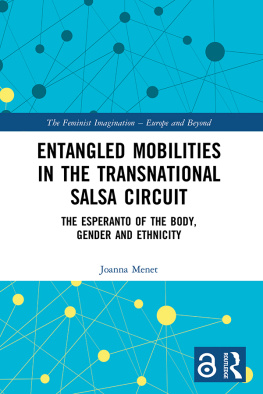
THE NEW DEMAGOGUES
The optimistic world of globalization and neo-liberal economics has rapidly disappeared in the last decade with financial instability, refugee crises, political extremism, Brexit and the potential breakup of the European Union. Donald Trumps foreign policy appears to be designed to undermine the UN, NATO, EU, and WHO. In response we have a plethora of explanations and definitions, especially of populism, but no comprehensive social science perspective. The crises are global and cannot be understood in a national context. Joshua Roose offers an original and innovative analysis exploring issues often overlooked by commentators: religion and masculinity. The erosion of key social institutions, especially citizenship and patterns of normative behavior such as civility, has created a social and political vacuum now filled by strong man politics and populist ideologies. Combining comparative empirical research, historical depth and theoretical inquiry, New Demagogues is sociology at its best.
Bryan S. Turner, The Graduate Center, City University of New York, USA
Focused on the emergence of US President Donald Trump, the United Kingdoms departure from the European Union, and the recruitment of Islamic State foreign fighters from Western Muslim communities, this book explores the ways in which the decay and corruption of key social institutions has created a vacuum of intellectual and moral guidance for working people and deprived them of hope and an upward social mobility long considered central to the social contract of Western liberal democracy. Examining the exploitation of this vacuum of leadership and opportunity by new demagogues, the author considers two important yet overlooked dimensions of this new populism: the mobilization of both religion and masculinity. By understanding religion as a dynamic social force that can be mobilized for purposes of social solidarity and by appreciating the sociological arguments that hyper-masculinity is caused by social injury, Roose considers how these key social factors have been particularly important in contributing to the emergence of the new demagogues and their followers. Roose identifies the challenges that this poses for Western liberal democracy and argues that states must look beyond identity politics and exclusively rights-based claims and, instead, consider classical conceptions of citizenship.
Joshua M. Roose is a Senior Research Fellow in Politics and Religion at the Alfred Deakin Institute for Citizenship and Globalisation, Deakin University, Australia. He is the author of Political Islam and Masculinity: Australian Muslim Men.
ROUTLEDGE STUDIES IN POLITICAL SOCIOLOGY
For a full list of titles in this series, please visit: https://www.routledge.com/sociology/series/RSPS
Performance Action
The Politics of Art Activism
Paula Serafini
Agonistic Articulations in the Creative City
On New Actors and Activism in Berlin's Cultural Politics
Friederike Landau
Talking Collective Action
A Sequential Analysis of Strategic Planning in Anti-Nuclear Groups
Ole Ptz
Brains, Media and Politics
Generating Neoliberal Subjects
Rodolfo Leyva
The New Demagogues
Religion, Masculinity and the Populist Epoch
Joshua M. Roose
The Political Attitudes of Divided European Citizens
Public Opinion and Social Inequalities in Comparative and Relational Perspective
Christian Lahusen
First published 2021
by Routledge
2 Park Square, Milton Park, Abingdon, Oxon OX14 4RN
and by Routledge
52 Vanderbilt Avenue, New York, NY 10017
Routledge is an imprint of the Taylor & Francis Group, an informa business
2021 Joshua M. Roose
The right of Joshua M. Roose to be identified as author of this work has been asserted by him in accordance with sections 77 and 78 of the Copyright, Designs and Patents Act 1988.
All rights reserved. No part of this book may be reprinted or reproduced or utilised in any form or by any electronic, mechanical, or other means, now known or hereafter invented, including photocopying and recording, or in any information storage or retrieval system, without permission in writing from the publishers.
Trademark notice: Product or corporate names may be trademarks or registered trademarks, and are used only for identification and explanation without intent to infringe.
British Library Cataloguing in Publication Data
A catalogue record for this book is available from the British Library
Library of Congress Cataloging-in-Publication Data
A catalog record has been requested for this book
ISBN: 978-1-138-36469-1 (hbk)
ISBN: 978-1-138-36470-7 (pbk)
ISBN: 978-0-429-43119-7 (ebk)
Typeset in Bembo
Taylor & Francis Books
To the Strong Women in My Life
Kristine, Arielle, Mietta and Mary
CONTENTS
In December 2016, as Director of the Institute for Religion, Politics, and Society at the Australian Catholic University, I was afforded the opportunity to visit Rome and the Holy See. I had several meetings at the Vatican, including with the Secretary for Relations with States and the Prefect of the Secretariat of the Economy. Noticeable on the latters bookshelves were a number of biographies of Margaret Thatcher, which were particularly striking to me at the time due to Thatchers association with neoliberal economics and her claims that there is no society. The Cardinal shared his concerns on a number of issues and identified identity politics and Islam as the key challenges facing the Church. This was at the height of the marriage equality movement, which was sweeping across the globe with remarkable success, and the peak of the Islamic State movements physical presence in the Middle East and international terrorist activities. This meeting, in particular, demonstrated to me that, at its very highest levels, the Catholic Church stood in direct political opposition to another faith and to those asserting their human rights in the public sphere.
Several days later I was fortunate to meet arguably the key figure in the study of political Islam, Professor Olivier Roy in Firenze, near the European University Institute. Over lunch and a couple of bottles of wine, we discussed the core thesis of his (then) new edited book (with Nadia Marzouki and Duncan McDonnell): Saving the People: How Populists Hijack Religion. It struck me that the books thesis was directly at odds with my recent experience at the Vatican. Also, more broadly, it was at odds with what I had observed within my role at the Catholic University and what was my experience having been raised in the Protestant evangelical tradition, in which textualism was absolutely central. Indeed, it appeared to be a conception of religion that assumed leaders were almost always, if not entirely, representative of a faith. My experiences demonstrated to me that each religion has deep undercurrents whereby those not in the ascendancy, be it within the religion itself or in the nation, believe it is gods will that they should be.
These initial thoughts stewed until the 2017 International Conference on Populism at the University of Potsdam led by Professor Bryan S. Turner and Professor Jrgen Mackert, where I was invited to present and spoke to broad themes on the intersection of religion and masculinity. It was a privilege to listen to some of the worlds great scholars on populism, yet many of the papers were theoretical and focused primarily on definitions. Furthermore, both religion and masculinity were largely overlooked. This led to the first steps toward writing this book and testing its core claims at the British Sociological Association Conference held at the University of Manchester, where I was fortunate to meet the Commissioning Editor of this Routledge series, Neil Jordan.





